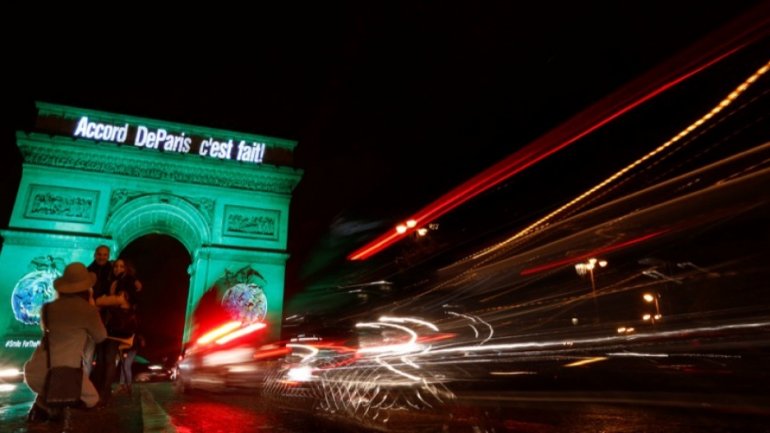The historic Paris climate change agreement becomes international law
 foto: Reuters
foto: Reuters
A worldwide pact to battle global warming entered into force Friday, just a week before nations reassemble to discuss how to make good on their promises to cut planet-warming greenhouse gases, reports Public Radio International.
Dubbed the Paris Agreement, it is the first-ever deal binding all the world's nations, rich and poor, to a commitment to cap global warming caused mainly by the burning of coal, oil and gas.
"A historic day for the planet," said the office of President Francois Hollande of France, host to the 2015 negotiations that yielded the breakthrough pact.
"Humanity will look back on November 4, 2016, as the day that countries of the world shut the door on inevitable climate disaster," UN climate chief Patricia Espinosa and Moroccan Foreign Minister Salaheddine Mezouar said in a joint statement.
"It is also a moment to look ahead with sober assessment and renewed will over the task ahead," they said.
This meant drastically and urgently cutting emissions, which requires political commitment and considerable financial investment.
The urgency was brought home by a UN report on Thursday which warned that emissions trends were steering the world towards climate "tragedy".
By 2030, said the UN Environment Programme, annual emissions will be 12 to 14 billion metric tons of carbon dioxide equivalent (CO2e) higher than the desired level of 42 billion tons.
The 2014 level was about 52.7 billion tons.
2016 is on track to be the hottest year on record, and carbon dioxide levels in the atmosphere passed an ominous milestone in 2015.
Lit up in green, the Eiffel Tower in Paris proclaimed: "Accord de Paris, c'est fait!" (Paris Agreement, it's a done deal!) — to hail the entry into force of the pact meant to stop the rot.
The historic agreement was finally endorsed in the French capital last December, after years of complex and divisive negotiations, but the ratification was reached with record speed.
At least 55 parties to the UN's climate convention (UNFCCC), responsible for at least 55 percent of global greenhouse gas emissions, had to ratify it for it to take effect.
It passed the threshold last month, and by Friday it had been ratified by 97 of the 197 UNFCCC parties, representing 67.5 percent of emissions, according to France's environment minister Segolene Royal, outgoing president of the UN talks.
A major doubt looms over the process, however, as diplomats gear up for 11 days of talks in Morocco to discuss way of putting the agreement's political undertakings into practice.
US Republican nominee Donald Trump has threatened to "cancel" Washington's participation in the agreement if he is elected president on November 8.
The pact undertakes to limit global warming to "well below" two degrees Celsius (3.6 degrees Fahrenheit) over pre-Industrial Revolution levels, and to strive for 1.5 C.
Countries submitted voluntary, non-binding carbon-cutting goals towards this goal.
According to the International Energy Agency, implementing the pledges would require investments of $13.5 trillion in efficient and low-carbon and energy technology to 2030 — almost 40 percent of total energy sector spending.
International
- UN report: Climate change could drive 122 million more people into extreme poverty by 2030
- Report: Global wine production falls by 5% due to climate change
- WMO: CO2 levels mark new era in world's changing climate
- Pope Francis's edict on climate change has fallen on deaf ears, study finds
- Paris climate change agreement enters into force
- British entrepreneur invents reusable mug to replace takeaway cups